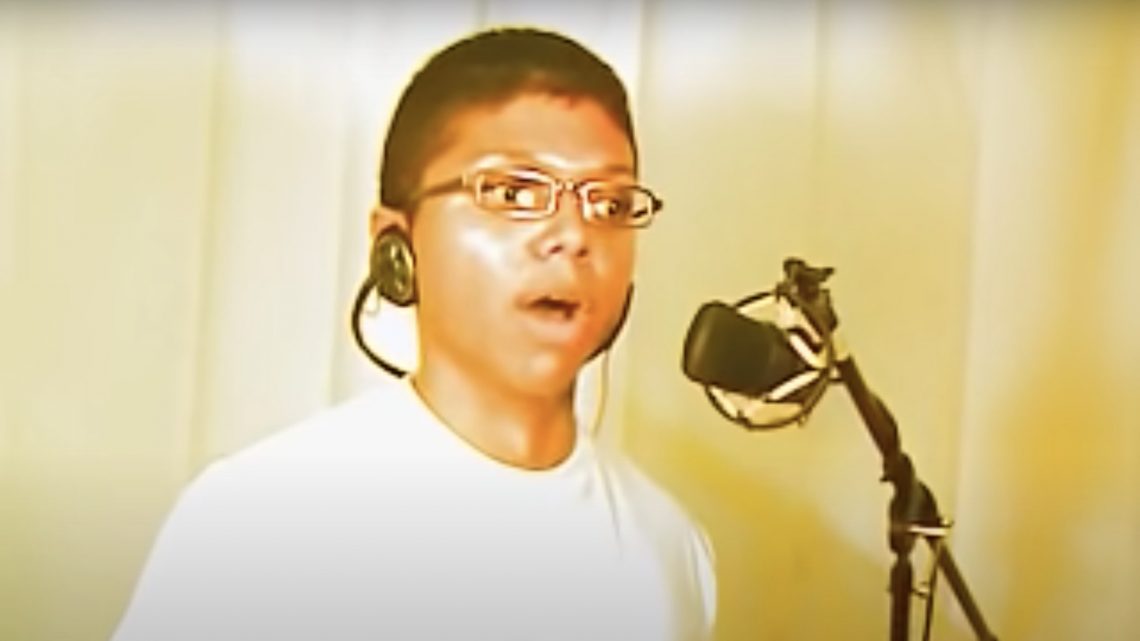
Hackers Jammed Chicago Police Scanners With Internet Classic ‘Chocolate Rain’
June 1, 2020On Saturday, an anonymous source told CBS Chicago that they believed protestors were more destructive on that day because Chicago police officers were having difficulty communicating with each other. The source—who was not identified as a cop, but who seemed to have a lot of info about the Chicago P.D.—said that the "protestors" jammed police scanners with bursts of music "so as to prevent police from responding properly."
Some outlets have suggested that it was the work of Anonymous, the loosely organized "hacktivists" who have been mostly quiet in recent months. Others said that it didn't take a hacker to commandeer a radio frequency; it just required someone in the crowd to use "a stolen piece of hardware." (That "piece of hardware" was not identified or described.)
Regardless of who was responsible, a number of videos posted on Twitter allegedly showed the Chicago police scanners playing N.W.A.'s "Fuck the Police" and Tay Zonday's "Chocolate Rain." Yes, that "Chocolate Rain," the **I move away from the mic to breathe in** kind of "Chocolate Rain." In the videos, soundtracked by Zonday's deep baritone, a female dispatcher can be heard saying "All units, the radio is being blocked, I can't copy anything that you're saying."
Everyone remembers seeing "Chocolate Rain" on YouTube for the first time, although it's harder to recall how we shared it with each other during those pre-iPhone days in the spring of 2007. Many of us remember the jokes, and the parodies, and Michael Scott confessing that he watched Cookie Monster's version "about a thousand times." But occasionally lost in Zonday's eccentric delivery are his metaphors for institutional racism which are still as relevant as they were when he wrote the song more than a decade ago.
The lyrics of "Chocolate Rain" cover everything from whitewashing the country's history of discrimination ("The schoolbooks say it won't be here again") to the racial disparity of the criminal justice system ("The same crime has a higher price to pay/The judge and jury swear it's not the face") to how slave labor factored into America's transformation into a global economic power. ("Dirty secrets of economy/Turns that body into GDP").
Zonday, whose real name is Adam Nyerere Bahner, has been alternately cagey and candid about the song's meaning. "We live in a society with an epidemic of declaratives and a poverty of interrogatives, and I think that part of the lasting appeal of 'Chocolate Rain' is that question perhaps being allowed to be an interrogative," he told VICE in 2016. "What is the meaning of 'Chocolate Rain?' Some people deduce that it might have a political message or a message about social justice or power, and what I would say is that there are people who would not want to receive a polemic message on those topics, but if they can be brought from not having an interrogative to being in a state of interrogative, questioning, 'What is the meaning of Chocolate Rain,' I think that's a fantastic outcome."
He was more straightforward two years later, in a video interview with BET. "I grew up in a biracial household. My mom is Black and my dad is white," he said. "We never talked to or referred to each other as ‘black’ and ‘white.’ So it was a bit of a shock to go out into the world as a teenager and there these things and they don’t really speak to my life and who I know human beings to be. I guess overall ‘Chocolate Rain’ was intended as a ballad about institutional racism.”
In recent months, Zonday has appeared in several hundred personalized Cameo videos (at $40, he's a bargain), he has narrated several chapters of Making Our Way Home: The Great Migration and the American Dream, and he has done Robert Frost readings for the Poetry Foundation. In the days since the nationwide protests began in response to George Floyd's murder, he shared the stripped-down, piano-only version of "Chocolate Rain" that he recorded for the song's 10th anniversary.
He has also tweeted once, on Sunday night: "I move away from the mic to demand justice," he wrote.

